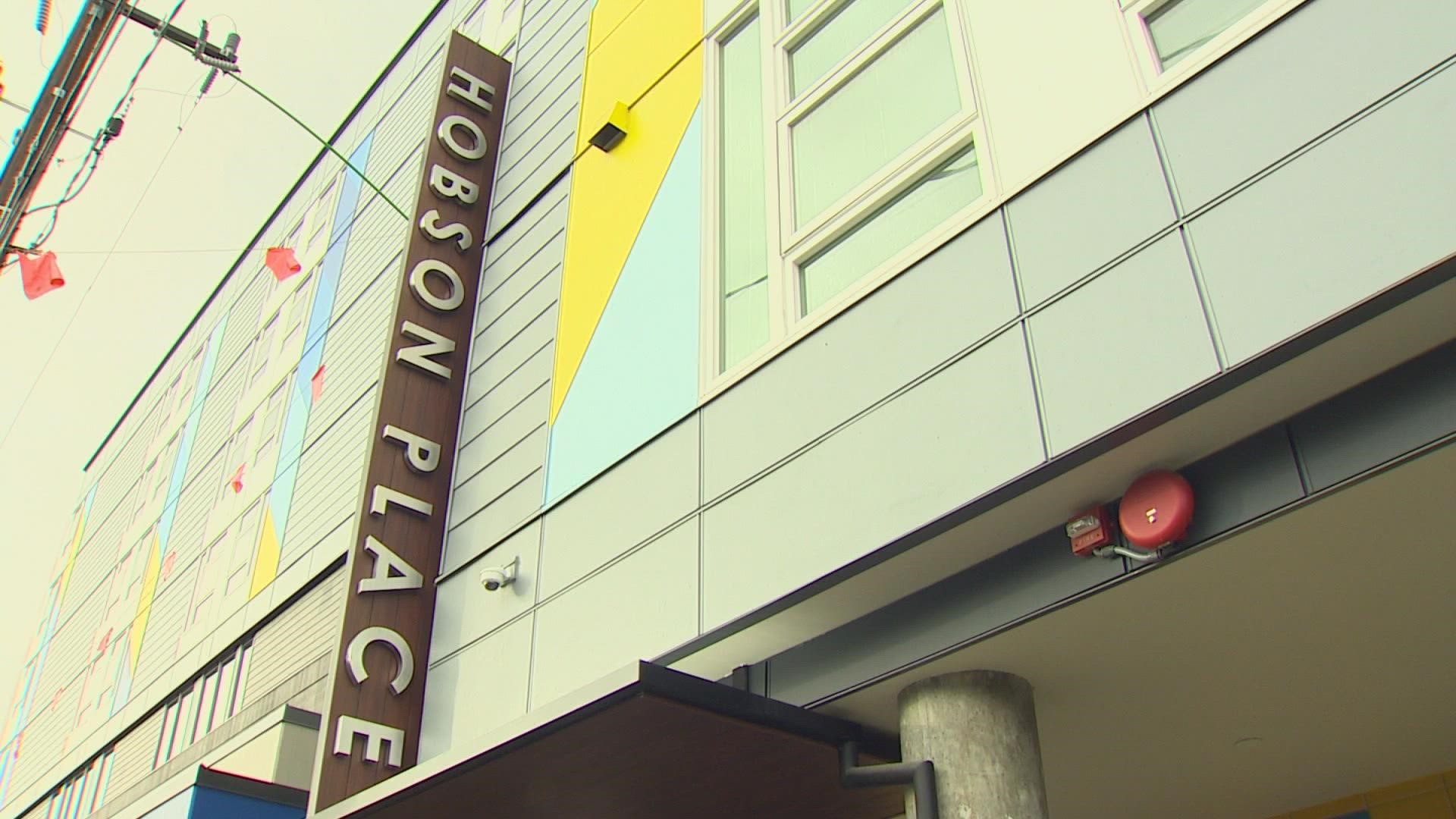SEATTLE — The Downtown Emergency Services Center (DESC) in Seattle is getting ready to welcome new residents to Hobson Place, DESC's latest housing development for homeless communities and others experiencing hardship.
The grand opening of the final phase of the building was Tuesday.
Hobson Place is the only housing project in Washington state with Passive House Certification. This means the building's new 92 apartments produce as much energy as they use, reducing overall energy use by 40%.
Phase one of the project was completed in October 2020, adding 85 affordable studio apartments to low-income individuals.
Phase two of Hobson Place adds an integrated health clinic, which was made possible because of DESC's partnership with Harborview Medical Center.
"It's going to have an entire breadth of services to allow for people to get everything from chemical dependency counseling to basic wound care in one place that is in their home," said Sondra Nielsen, director of facilities and asset management for DESC.
The new units will serve as permanent housing for people experiencing chronic homelessness, physical or mental health conditions and people living with disabilities.
"This facility will enable us to now meet their medical needs, in their home, which is something that we absolutely need to do for this critical client population," said Nielsen. "The facility is unique in that it combines services that are not combined anywhere else."
The idea for the facility came about as a way to provide the best care to homeless individuals and other struggling communities who have a hard time getting the care they need.
"Our BIPOC communities really don't have the access to services that are needed," said Steven Bullock, deputy director of operations for DESC. "It also makes them feel like it's a part of their own environment. It's a trusting environment where they can go and be served by people that look like them."
Some residents who are able will sign leases and pay rent that is no more than 30% of their income.
Bullock said he hopes this new model will work and be used for future development, adding that this type of housing is actually saving taxpayers money.
"By serving the community, it actually saves us money because we have access to them," he said. "We don't drive up emergency room care."

